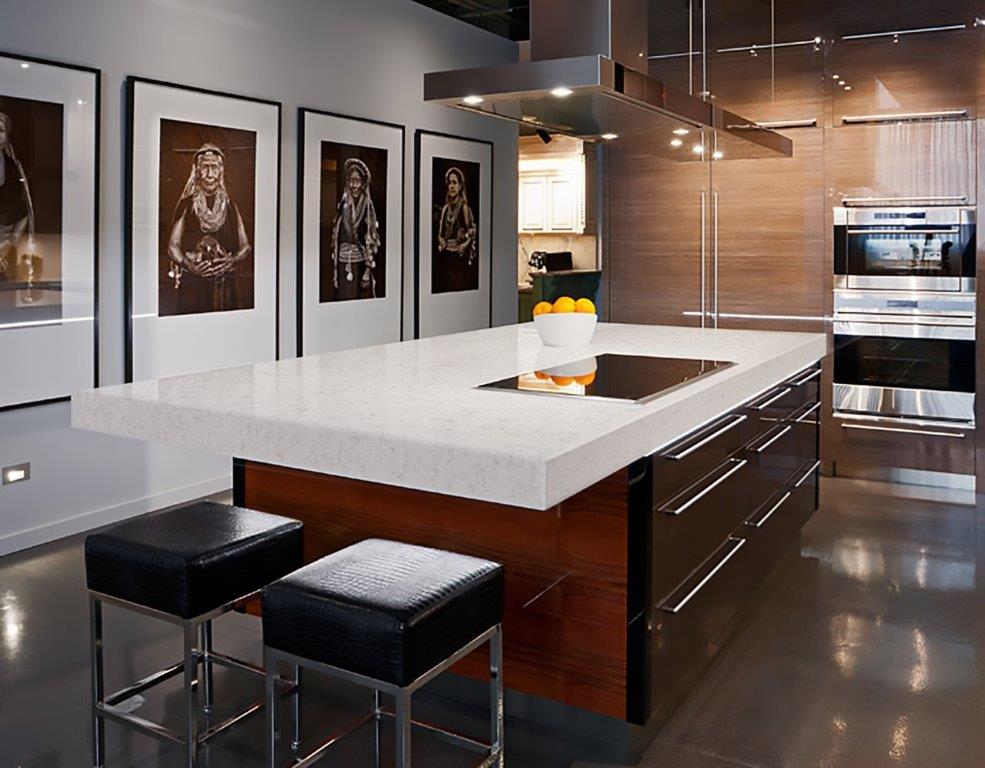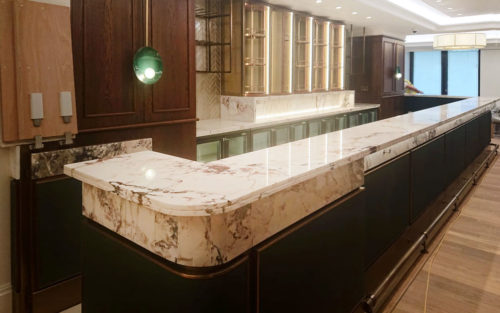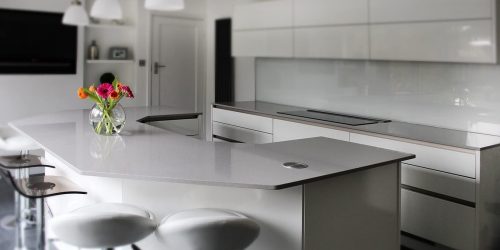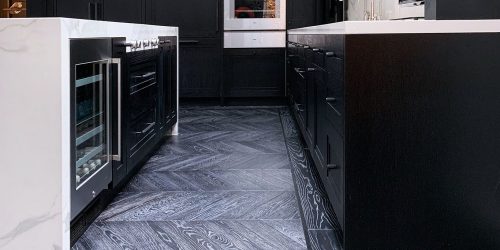If you live in Hemel Hempstead and are considering installing new kitchen worktops, then at Marble & Granite we’ve got your back. We are based in Hatfield, which is only 20 minutes’ drive, if that, and we make worktops from a number of different stone products. If you are thinking of granite worktops in Hemel Hempstead, that is one of the stones that we use, but we also supply marble, limestone, and quartzite worktops, and we can provide worktops made from manufactured stones such as quartz and sintered stone.
Sintered stone is an extremely strong product and can be used for a range of interior design applications such as flooring, wall tiling, and cabinetry, in addition to worktops. If you imagine a natural material such as marble or granite, but with all of the benefits of a porcelain panel – scratch resistant, stain resistant, fire resistant, low-maintenance, and durable, and can be recycled, that is sintered stone.
Sintering is by no means a new process, although it has been developed in recent years. But it goes back 25,000 years when minerals were dug up from the earth and used to create bricks, porcelain, ceramics, iron, and precious metals. However, in recent years the process has been refined and today produces many engineered components for a broad range of industrial fields. Sintered stone comprises raw materials that have been powdered and exposed to high heat and vibrations under extreme pressure.
Sintered stones are resistant to scratches, stains, and chemicals, and in addition are heat and frost resistant. The process is similar to that used to produce porcelain ceramic tiles, being heated to just below the melting point of the minerals before being cured into the final format. Sintered stones are made using a combination of selected natural minerals which are powdered and then mixed with a minimal amount of water, and then the heat and pressure cause the powder particles to bond together to form a very dense and non-porous product. In fact, the porosity is less than 0.09% which means that they will not absorb liquids, and that worktops created from them will not require sealers.
Sintered stone surfaces can simulate the appearance of marble, tile, stone, concrete, and even wood, as well as other smooth or textured surfaces. They are available in a range of through-body colours and patterns, and the non-porous surfaces are easy to clean. Most importantly, they are biologically inert and cannot contain any bacteria so are perfectly suited or any type of food preparation.
Furthermore, although sintered stones are, by definition, incredibly long-lasting, when they reach the end of their useful life they can be recycled, since they are created in the first place from natural materials.
Another manufactured stone that we supply at Marble & Granite is quartz. This is processed in a similar way to sintered stone, the natural quartz being mined and then powdered. It is then mixed with approximately 7% pigments and resins. This results in a stone which is non-porous and stain-resistant and doesn’t need sealing. You can spill red wine, coffee, oil, tea, and acids such as lemon juice or vinegar, and they won’t stain as long as you wipe them up in 24 hours or so. It also means that quartz cannot harbour moulds or bacteria and is therefore totally suitable for the preparation of foods.
Natural quartz is one of the hardest materials on earth and thus engineered quartz stone is inherently durable and will withstand the pace of life in the kitchen. It is available with either a polished or honed finish as you choose.




